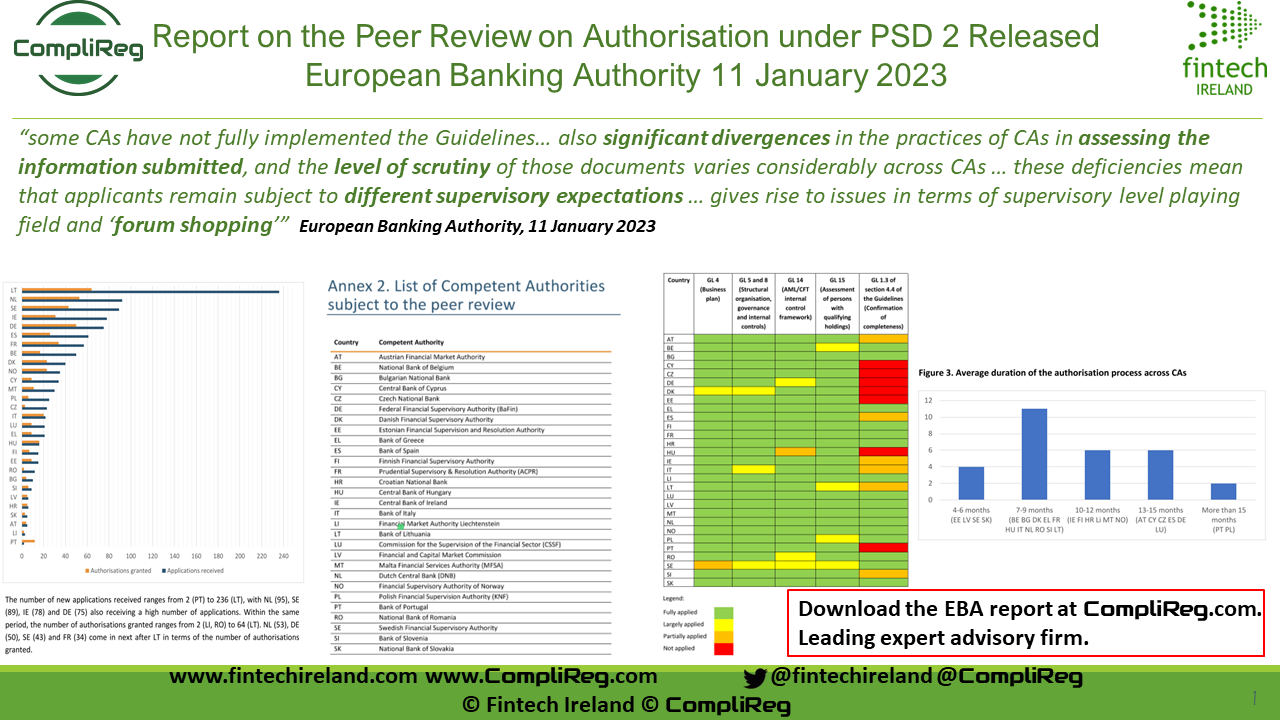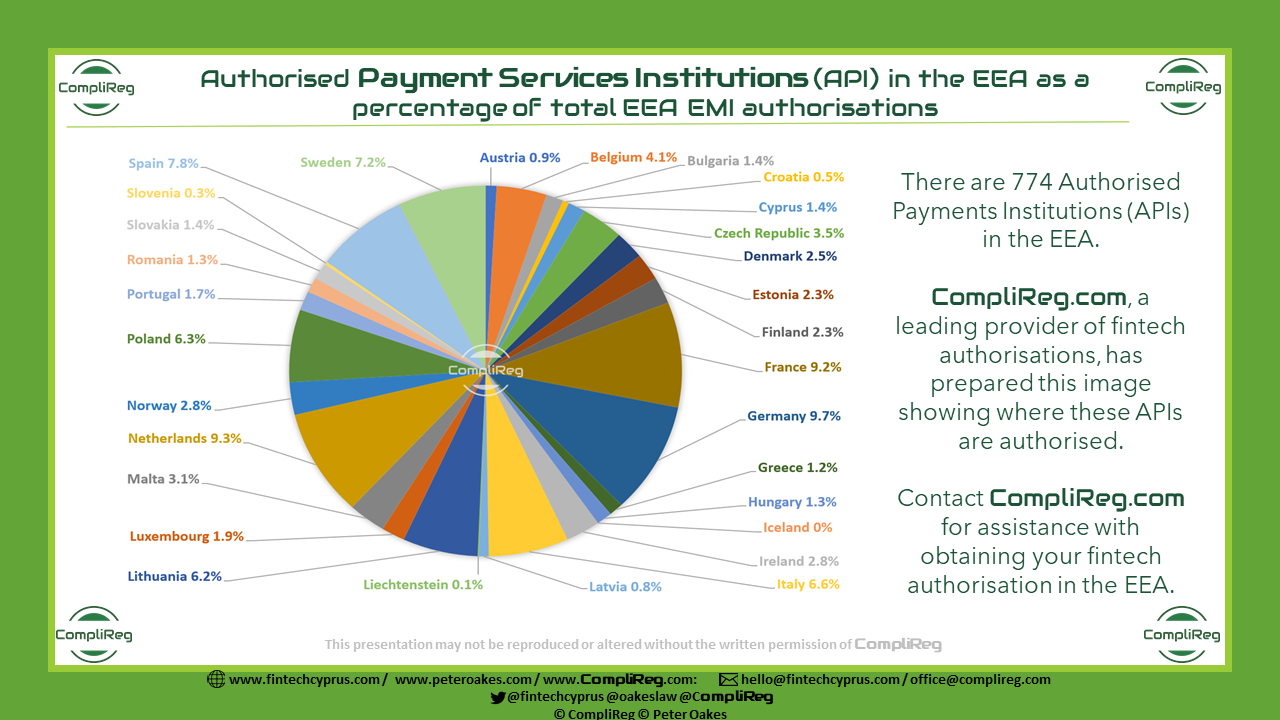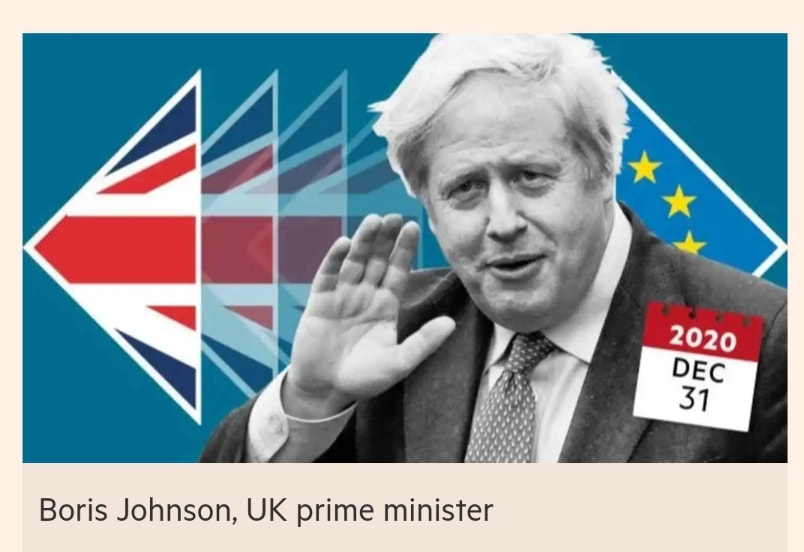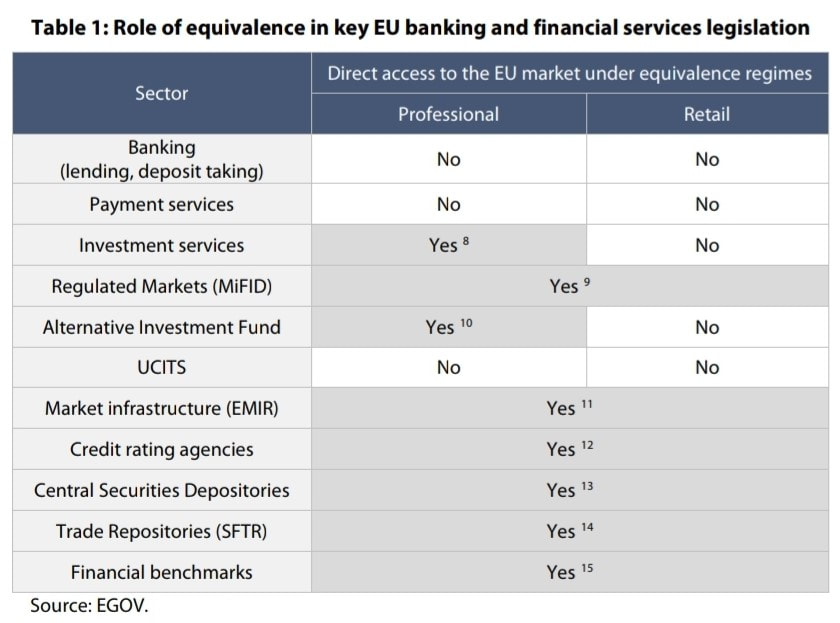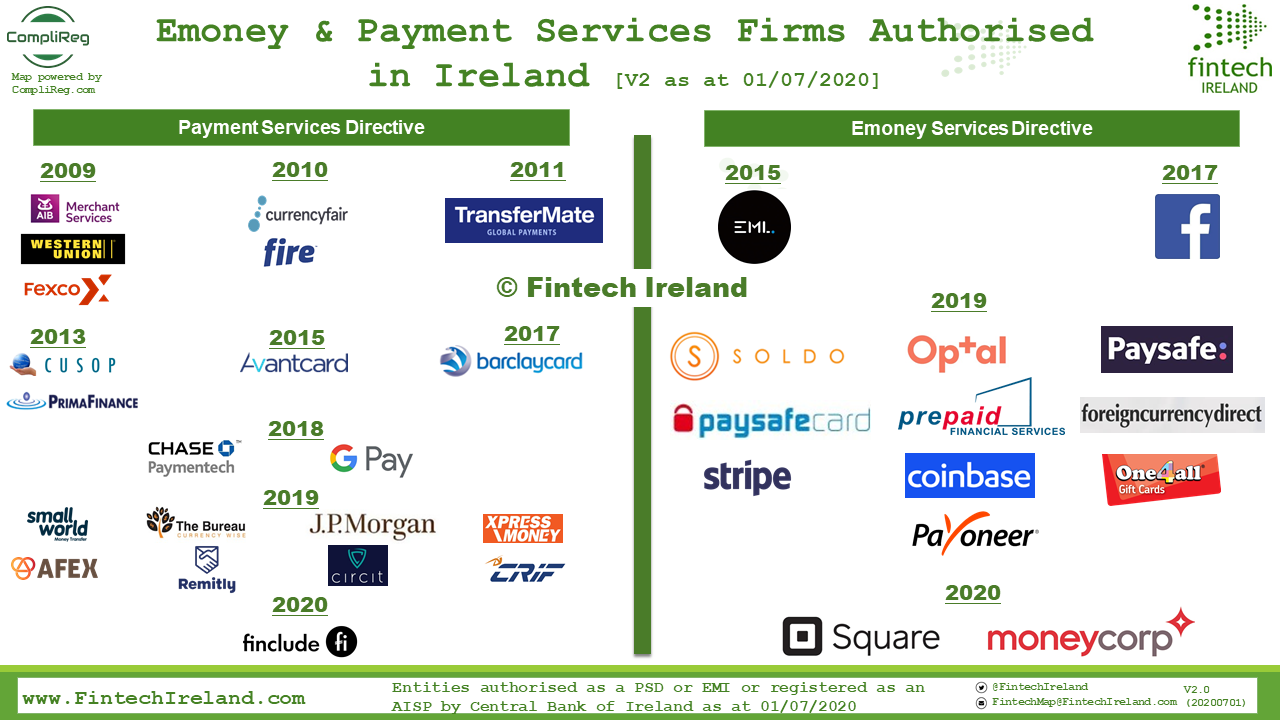AuthorPeter Oakes is an experienced anti-financial crime, fintech and board director professional. Archives
January 2025
Categories
All
|
Back to Blog
CompliReg helps UK and EU fintech become authorised and works with them on regulatory, governance and compliance issues. Led by Peter Oakes, please get in touch HERE One for #emoney firms to take note of whether authorised in the UK or Ireland, and indeed throughout the EU.
This relates to the UK FCA finding that, in order to protect consumers, three clauses in an authorised and regulated regulated #fintech company's T&Cs (in the EU referred to as the Framework Contract) fell short of the Consumer Rights Act 2015. On 4 October 2023, the FCA published a Notice of Undertaking (the “Undertaking”) agreed with Wirex Limited (FRA #902025), citing the following T&Cs with: 1) Excluding liability as a result of account suspension. This provision excluded the firm’s liability for any losses suffered by consumers, should the firm suspend their account in accordance with the provision, irrespective of the circumstances. The FCA considered this to be unfair under the Act as it permitted the firm to deny consumers compensation to which they may otherwise be entitled due to such a suspension, even if the firm had caused the relevant loss. 2) Limitation of compensation available to consumers. The T&Cs purported to limit the sum of compensation a consumer was entitled to receive in the event of a loss to the sum the consumer had paid to the firm in the year prior to making the claim. The FCA considered that this term derogated from the position under national law, as it limited a consumer’s right to obtain the proper amount of compensation in the event of a contractual breach by the firm. The FCA considered that the firm could not reasonably assume a consumer would have agreed to such a term in individual negotiations, because a consumer would most likely expect that if the firm had done something wrong and caused them loss, they would be entitled to commensurate compensation regardless of what they had paid to the firm. 3) Exclusion of commitments that may be implied by law. The T&Cs included a term that enabled the firm to exclude any commitments that may be implied by law, to the extent that it was permitted to do so. The FCA was concerned that this provision lacked adequate transparency, as consumers were unlikely to be aware of the extent to which the firm would be able to exclude their liability under obligations implied by law. Wirex Limited has:
According the FCA's register, Wirex Limited has been an "Authorised Electronic Money Institution" since 17/08/2018. Further reading:
0 Comments
Read More
Back to Blog
Friday 20th January 2023: Central Bank of Ireland (CBI) issued a Dear CEO letter to the fintech industries of electronic money institutions and payments institutions. The purpose is to reaffirm the CBI's supervisory expectations built on its supervisory experiences, both firm specific and sector wide, and enhance transparency around its approach to, and judgements around, regulation and supervision.
If you are looking to get authorised as an electronic money or payments institution in Ireland, contact us. We are working with a number of such applicants and we advise those already authorised on their on-going regulatory obligations, business models and strategy. See our Authorisation Page with links to useful Authorisation Guides. Busy start to the year with enquiries from UK, Asia and the US continuing to roll in about the benefits, opportunities and challenges of establishing a EEA regulated presence in Ireland, particularly for #emoney and #payments. While Ireland is in the top three of the final round, there remains stiff competition (so to speak) from two other leading jurisdictions. Thus it was good to see, , as I am sure others will agree, the Central Bank of Ireland most recent Dear CEO letter issued to emoney and payments institutions on Friday 20 January 2023 by Mary-Elizabeth McMunn, Director of Credit Institutions Supervision. It will help provide greater clarity not only to currently authorised emoney and payments firms, but also those in the authorisation pipeline and those thinking of filing in Ireland. It is a meaty document at 5,168 words across eleven (11) pages. Download a copy of the letter and additional relevant reading material here - https://complireg.com/blogs--insights/2023-dear-ceo-letter-re-supervisory-findings-and-expectations-for-payment-and-electronic-money-e-money-firms If you wish to get a quick understanding of the letter in terms of your regulatory obligations search the words 'we expect'. You will see those appear eleven (11) times too! Right now, best to mark in your calendar and work backwards, that an audit opinion on safeguarding, along with a Board response on the outcome of the audit, is to be submitted to the CBI by 31 July 2023. And it is not just a case of ringing your current external auditors and appointing them.
The purpose of the letter is to reaffirm the CBI's supervisory expectations built on its supervisory experiences, both firm specific and sector wide, and enhance transparency around our approach to, and judgements around, regulation and supervision. The breakdown of the letter is as follows: (1) Supervisory Approach for the Payment and E-Money Sector (provides wider and specific context to our supervisory approach). (2) Supervisory Findings (key findings from supervisory engagements over the last 12 months and actions the CBI expects firms to undertake) ➡ Safeguarding; ➡ Governance, Risk Management, Conduct and Culture; ➡ Business Model, Strategy and Financial Resilience; ➡ Operational Resilience and Outsourcing; ➡ Anti-Money Laundering and Countering the Financing of Terrorism;
(3) Conclusion and Actions Required (CBI's expectation that this letter is provided to and discussed with your Board, and any areas requiring improvement that directly relate to your firm are actioned). Next Steps: Get in contact with Peter Oakes / CompliReg. Founded by the CBI's inaugural Director of Enforcement and AML/CFT Supervision & board director of payments, emoney and MiFID companies. Peter is also a former: FSA (now FCA) enforcement lawyer; senior officer (legal) at ASIC; and adviser to the deputy director of banking at SAMA. Further Reading: 10 December 2021: Authorisation Guidance and Supervisory Expectations for Payment and Electronic Money Firms (Central Bank of Ireland) 09 December 2021: Central Bank of Ireland Dear CEO Letter on Supervisory Expectations for Payment and Electronic Money (E-Money) Firms
Back to Blog
Report on the Peer Review on Authorisation under PSD 2 Released European Banking Authority11/1/2023 Are you looking for the Report on the Peer review on Authorisation under PSD2 released today by the European Banking Authority? Click here or the image above to download it in PDF format. If you are struggling with an application for an electronic money or payments institution authorisation in Europe, contact us here and/or complete the Authorisation/Licence Enquiry Form here. If you are looking at becoming authorised in Ireland as an emoney institution or payments institution check out Fintech Ireland's and CompliReg's authorisation guides here. What does the EBA peer review say?The report sets out the findings of the EBA’s peer review on the authorisation of #Payment Institutions (PIs) and #ElectronicMoney Institutions (EMIs). In executive summary format, the report says:
Some good supervisory practices observed by the EBASome good supervisory practices observed during the analysis that might be of benefit for other CAs to adopt.
Some recommendations identified by the EBAThe report expands on the recommendations included in the EBA’s response to the European Commission on the review of the PSD2 (EBA/Op/2022/06) and recommends that, as part of its ongoing PSD2 review process, the European Commission:
What are the objectives of the EBA report?The objectives of this report are to:
This report is also a partial fulfilment of the mandate conferred by the PSD2 on the EBA to review the Guidelines “on a regular basis and in any event at least every 3 years” (Article 5(5) PSD2). Which competent authorities are in scope?The peer review was performed by a Peer Review Committee of EBA and CA staff (see Annex 1 for the composition) and covered the CAs from all EU Member States and from two EEA States, as detailed in Annex 2. One EEA CA (IS) was not reviewed because it has only recently implemented the PSD2 and did not receive any application for the authorisation of PIs and EMIs in the period analysed (2019-2021). [CompliReg - not sure if IS is a typo, and should be 'SI' for Slovenia?] The Self-Assessment model adopted by the EBAThe analysis has been conducted based on the CAs’ responses to a self-assessment questionnaire (SAQ), which covered a three-year period from 1 January 2019 to 31 December 2021. Where necessary, the PRC followed up with the CAs in writing seeking further clarifications and explanations. The PRC also conducted interviews with a subset of 10 CAs (BG, DK, ES, PL, PT, MT, NL, IT, LT and SE) to gain a better understanding of their supervisory practices. EBA Conclusion on timeliness of the authorisation processPage 51, para 171 "5. Conclusions and recommendations" sates: "With regard to the timeliness of the authorisation process, the review found that, while all CAs comply with the requirement in Article 12 PSD2 to take a decision on an application within 3 months from receiving a complete application, the average duration of the authorisation process varies significantly across MS, ranging from 4-6 months to +20 months. The main reason for this is the quality of applications and applicants’ timeliness in addressing the issues identified with the application. The PRC also identified a number of other reasons for these variations in duration across CAs, which include different timelines set out in national law and different procedural approaches adopted by CAs in the acceptance and assessment of applications." [CompliReg - no doubt, and there is merit here, many firms will struggle with the EBA's finding that "all CAs comply with the requirement in Article 12 PSD2 to take a decision on an application within 3 months from receiving a complete application".] The constitution of the 'peer review committee'?The Peer reviews were carried out by ad hoc peer review committees composed of staff from the EBA and members of competent authorities, and chaired by the EBA staff. This peer review was carried out by:
List of Competent Authorities subject to the peer review
Back to Blog
This post is a follow up post to last week's one (8 December 2021) where we released data on the Top 5 European Union member states for electronic money institution (EMI) authorisations. You can find those posts here - CompliReg blog here and Linkedin post here. Which are the Top 5 European Union member states for #paymentinstitutions (#API) authorisations? Read on, you may be surprised. #fintechfunfacts #fintechfriday
This post is a follow up to last week's one (8 December 2021) when CompliReg released data on the Top 5 European Union member states for electronic money institution (EMI) authorisations. You can find those posts at CompliReg https://lnkd.in/eimmnhup & Linkedin https://lnkd.in/e_JwinjJ. There are 774 APIs authorised in the European Economic Area.* Following the United Kingdom's exit from the European Union, the crown for the home of the largest number of APIs lands on the head of Germany (9.7%) followed by The Netherlands (9.3%), France (9.2%), Spain (7.8%) with Sweden (7.2%) rounding out the Top 5. Lithuania, the undisputed leader of EMI authorisations, came in at 8th place at 6.2%. Given that EMIs can provide payment services too, I don’t think Lithuania will be viewing today’s release as anything but positive for its overall ecosystem. We will publish data combining both #EMIs and #APIs very shortly in order to give a more holistic picture of where the majority of these #fintech firms are authorised in the #EEA. That post will arguably provide the final word on Europe’s top spot for the highest number of such authorisations. Had the UK not left the European Union, it would be the undisputed king of #payment firms, just as it would have been for #emoney institutions. Let us know if this information is interesting and your thoughts. Are you surprised by the split? Did you expect Sweden to make the Top 5? Are you surprised that when it comes to authorised #paymentservices firms, the EMI leader board is not replicated? And of course, if you need assistance with your fintech authorisation, please get in contact (that's the advertisement piece!). CompliReg supports: * https://lnkd.in/eqiNpFdZ * https://FintechMalta.com, * https://FintechIreland.com, * https://FintechCyprus.com, * https://FintechUK.com and soon a new Fintech France website! * Data based on European Banking Authority records published 8th December 2021. Linkedin Post here - https://www.linkedin.com/posts/peteroakes_paymentinstitutions-api-fintechfunfacts-activity-6877591088606007296-N9xp
Back to Blog
Which are the Top 5 European Union member states for electronic money institution (#EMI) authorisations? Read on, you may be surprised.
[If you are looking to get authorised as a fintech in the European Economic Area visit our authorisation page ] There are, as of today's records published by the European Banking Authority, 268 EMIs authorised in the European Economic Area. Following the United Kingdom's exit from the European Union, the crown for the home of the largest number of authorised EMIs lands on the head of Lithuania (16.2%), followed in the distance by Malta (5.3%), then both Ireland and France (tied at 3.4% each) and rounding out the Top 5 is Cyprus (3%). It is remarkable, and admirable, that Lithuania has attracted such a large number of these fintech. No wonder CompliReg supports: * https://FintechLithuania.com, * https://FintechMalta.com, * https://FintechIreland.com, * https://FintechCyprus.com, and soon a new Fintech France website! Had the UK not left the European Union, it would be the undisputed king of emoney firms having 2.8 times more authorised EMIs than Lithuania and a mere 4% fewer than the total number of all EEA authorised EMIs. No surprise either that CompliReg supports https://FintechUK.com. In the coming days we will release more #funfintechfacts about the EEA and UK. Having crunched a pile of numbers, I expect that in the not too distant future the number of EMIs, authorised payments institutions and AISPs will equate to approximately half the number of authorised credit institutions in the EEA. But presently these fintech companies have a long way to go to outnumber the banks - being only 35% of the total number of authorised EEA credit institutions. Let us know if this information is interesting and your thoughts. Are you surprised by split? What you may be surprised by is that when it comes to authorised #paymentservices firms, the EMI leader board is not necessarily replicated! And of course, if you need assistance with your fintech authorisation, please get in contact (that's the advertisement piece!). This post appears on LinkedIN - https://www.linkedin.com/posts/peteroakes_electronicmoney-emi-fintech-activity-6874439675864502272-5SiL
Back to Blog
How much does an #antimoneylaundering governance investigation cost a #fintech?
Previously noted that Australian EML doesn't expect a #moneylaundering compliance investigation (no allegation of money laundering) into one of its recently acquired Irish acquisitions (PFS Card Services Ireland Limited acquired in a deal worth up to €216.9m) to exceed AUD 2million / €1.27mn this Australian financial year which ends 30 June. However it cannot forecast the cost going into the next nor subsequent years. See https://lnkd.in/eg2cm82 (see previous blogs here). Well, it looks likely the costs may go higher if a class action by Shine Lawyers begins to bite, with the Aussie law firm looking for investors who bought shares between December 19, 2020, and May 17, 2021, to join its class action. The law firm says: * “EML did not request a trading halt for almost four days after learning of these concerns and then took another 48 hours to inform the market,” says Australian law firm * “When shareholders invest their money into a company, they do so with the belief that that company will comply with its continuous disclosure obligations. * “Our claim will allege that EML failed in its obligations, significantly impacting share prices for thousands of investors.” Read more by Sean Pollock at https://lnkd.in/efTj2dU Linkedin Post - https://www.linkedin.com/posts/peteroakes_antimoneylaundering-fintech-moneylaundering-activity-6809752916379922432-wNal
Back to Blog
UK FCA Dear CEO Letter - Emoney Firms ensure customers understand how their money is protected18/5/2021 On Tuesday 18th May 2021, the UK Financial Conduct Authority issued a Dear CEO Letter to Electronic Money Institutions headed "Please act: ensure your customers understand how their money is protected."
You can read a copy of the letter here. Some interesting excerpts from the letter below: What is the UK FCA concerned about?:
Action expected of emoney firms by the FCA:
Note the FCA point that the communication to customer be separate from any other messaging or promotional activity. And that the FCA expects emoney firms to consider the appropriate method(s) of communication based on their business model and customer base, including any vulnerable customers. Why should emoney action the letter?: Because the FCA intend to follow up, with a sample of firms, to assess the actions taken. Contact the team at CompliReg if you require assistance. You can read a copy of the letter here.
Back to Blog
Some choice headlines in the papers about Brexit in the past week as we - according to Brexit Ireland's countdown to Brexit clock - just little more than 33 days before 11p.m. (UK time) on Thursday 31st December 2020 when the Brexit transition period ends with no deal on financial services in sight. This week sees the EU negotiating team returning to London after face-to-face talks came to end more than a week ago after Mr Bariner's team was hit by a case of Covid. They will be greeted by headiness such as: UK dismisses ‘derisory’ EU fishing offer ahead of last-ditch trade talks; Europe’s finance sector hits ‘peak uncertainty’ over Brexit; and The City braces for Brexit. There is no equivalence regime provided for within either EMD2 (electronic money institutions) or PSD2 (payments services institutions)! One thing we are still very surprised by is the many in #fintech, #techfin and indeed #finserv (and scarily their advisers) who think that recent news on 'equivalence' deals are applicable to all UK #finserv which passport across the European Union / EEA. The announcement on Monday 23rd November by the European Commission was simply and specifically about European regulators finalising a late change seeking to avoid chaos in £15tn of derivatives contracts held between UK and EU counterparties. Then on Wednesday 25th, they insisted outposts of EU banks in London would have to trade certain derivatives in the EU. Back in August 2020 the European Parliament reminded that "Equivalence decisions are a unilateral decision by the Commission. The Commission ultimately exercises its discretion as conferred upon it by the “empowerment” given in EU sectoral legislation.'' BUT MORE IMPORTANTLY "The Commission also enjoys discretion to withdraw equivalence decision. The equivalence frameworks in force do not provide as such specific procedures for monitoring, reviewing or amending equivalence decisions." There are no equivalence provisions in EU bank, payments nor electronic money directives, and the equivalence provision in MiFiD doesn't apply to retail investment services. See the below table on the 'Role of equivalence in key EU banking and financial services legislation' for confirmation. The upshot is that if you are a UK authorised payments institution or electronic money intuition, come Thursday 31st December 2020 when your ability to passport across the whole of European Economic Area comes to an end, so too does your business model unless you have obtained an authorisation in an EU/EEA state. There are are other options available but we'll leave that for another article. If you are a regulated fintech looking for a home post #brexit contact https://complireg.com/authorisations.html. Read our Fintech Authorisation Guides published jointly by CompliReg and Fintech Ireland on the authorisation process. And check out the 'Why Ireland for Fintech' brochure. Why Ireland for your regulated fintech?
“From January 1st, EU rules will apply to UK firms wishing to operate in the EU. UK firms will lose their financial passport: it’ll be anything but business as usual for them. This means they will have to adhere to individual home-state rules in each and every member state,” the official said. Further reading:
26 November 2020 - Move to EU or face disruption, City of London is warned
27 August 2019 - "Third country equivalence in EU banking and financial regulation"
29 July 2019 - Financial services: Commission sets out its equivalence policy with non-EU countries 12 July 2017 - "Third-country equivalence in EU banking legislation"
Back to Blog
CompliReg is proud to power the Official Fintech Ireland Map 2020. We are now powering the Regulated Fintech Ireland Map version 2 which showcases the regulated payment services directive and electronic money directive firms authorised by the Central Bank of Ireland. Joining this Map in 2020 are the first of two - hopefully many more to come - e-money firms, Squareup International Limited ("Square") and MoneyCorp. Ireland now has:
In addition to issuing emoney, Square is authorised to provide payment services number 3b (execution of payment transactions through a payment card or a similar device) and number 5 (issuing of payment instruments and/or acquiring of payment transactions). Although Moneycorp is yet to appear on the Central Bank of Ireland register, Moneycorp confirmed to us that it is also authorised to provide payment services 3b, 5 and in addition 3c (execution of credit transfers, including standing orders). Moneycorp has been fairly busy. In addition to its emoney authorisation, it also secured a MiFID authorisation. By the way, AFEX which was authorised as payments institution in 2019 also secured a MiFID licence. Expect to see more firms seek both an emoney/payments authorisation together with a MiFID one. Moneycorp’s Dublin office, which opened in 2013, has operated as a branch of its UK regulated entities, saying that as part of Moneycorp’s strategic response to Brexit and wider market developments, it has now secured its e-money and MiFID licences from the Central Bank of Ireland for a newly established Irish company. Bryan McSharry, chief executive of Moneycorp’s European business, said the licences ensured it could “continue to support our existing customer base, continue to grow our business in Ireland and expand our business across the EU in a post-Brexit environment”. They are: Payments Firms: AIB Merchant Services, Western Union, Fexco, CurrencyFair.com, TransferMate Global Payments, #Fire, CUSOP (Payments) Ltd, #PrimaFinance, Avantcard, Barclaycard, #Chasepaymentech, Google Pay, #smallworld, AFEX, BUREAU BUTTERCRANE LTD, Remitly, J.P. Morgan, Circit.io, Xpress Money, CRIF & Finclude (fka. Verge.Capital) Emoney Firms: EML, Facebook, Soldo, Optal, Paysafe Group, paysafecard.com, Prepaid Financial Services Limited (PFS), #foreigncurrencydirect, Stripe, Coinbase. One4all Group, Payoneer, Square and Moneycorp. Congratulations Moneycorp and Square and welcome to the thriving regulated Irish fintech ecosystem. If you are looking to get authorised in Ireland as an emoney or payments firm, see these Authorisation Guides. Read Moneycorp's press release below. Moneycorp secures its E-Money and MiFID licences in Ireland
New Irish entity, licenced by Central Bank of Ireland, to drive expansion across EU Moneycorp to build on €3 billion of transactions executed for Irish clients in 2019 Dublin, 1 July 2020 | Moneycorp Group, the global foreign exchange and payments business has been granted its Electronic Money Institution (E-Money) and MiFID licences by the Central Bank of Ireland (CBI), further bolstering its offering and expansion in the European Union (EU). Moneycorp is one of the world’s largest specialist foreign exchange companies, serving corporates and individuals across multiple channels since 1979. Headquartered in London, Moneycorp opened its Dublin office in 2013 to provide corporate clients with foreign exchange and payment services over its market leading on-line platform as well as directly from its Dublin dealing room. Since launch, the Dublin office has operated as a branch of the Group’s UK regulated entities, however, as part of Moneycorp’s strategic response to Brexit and wider market developments, it has now secured its E-money and MiFID licences from the CBI for a newly established Irish company; Moneycorp Technologies Limited (MTL). Bryan McSharry, CEO of Moneycorp’s European business, said: “We are delighted to have secured both E-money and MiFID licences from the Central Bank of Ireland. This ensures we can continue to support our existing customer base; continue to grow our business in Ireland; and expand our business across the EU in a post Brexit environment.” “Since launching in Dublin in 2013, we have built a strong corporate and individual customer base of Irish clients – based on our ability to provide best in class foreign exchange services across our market-leading technology platform. We completed €3 billion of transactions for Irish clients in 2019 and we will build on that in 2020 and beyond. Our CBI licences will enable us to continue to expand our business and headcount in Ireland and offer our market-leading service to a vastly increased customer base across the EU.” About Moneycorp Group Moneycorp Group is a global foreign exchange and payments business with offices in the UK, USA, Brazil, Hong Kong, Spain, Gibraltar, Romania, Australia, the UAE and Ireland. With a forty year record of outstanding customer service, today the Moneycorp group serves the growing foreign exchange and payments needs of global businesses, importers and exporters as well as personal clients. W: www.moneycorp.com L: linkedin.com/company/moneycorp/ T: @moneycorp I: instagram.com/moneycorp/ |
© CompliReg.com Dublin 2, Ireland ph +353 1 639 2971
| www.complireg.com | officeATcomplireg.com [replace AT with @]
| www.complireg.com | officeATcomplireg.com [replace AT with @]



